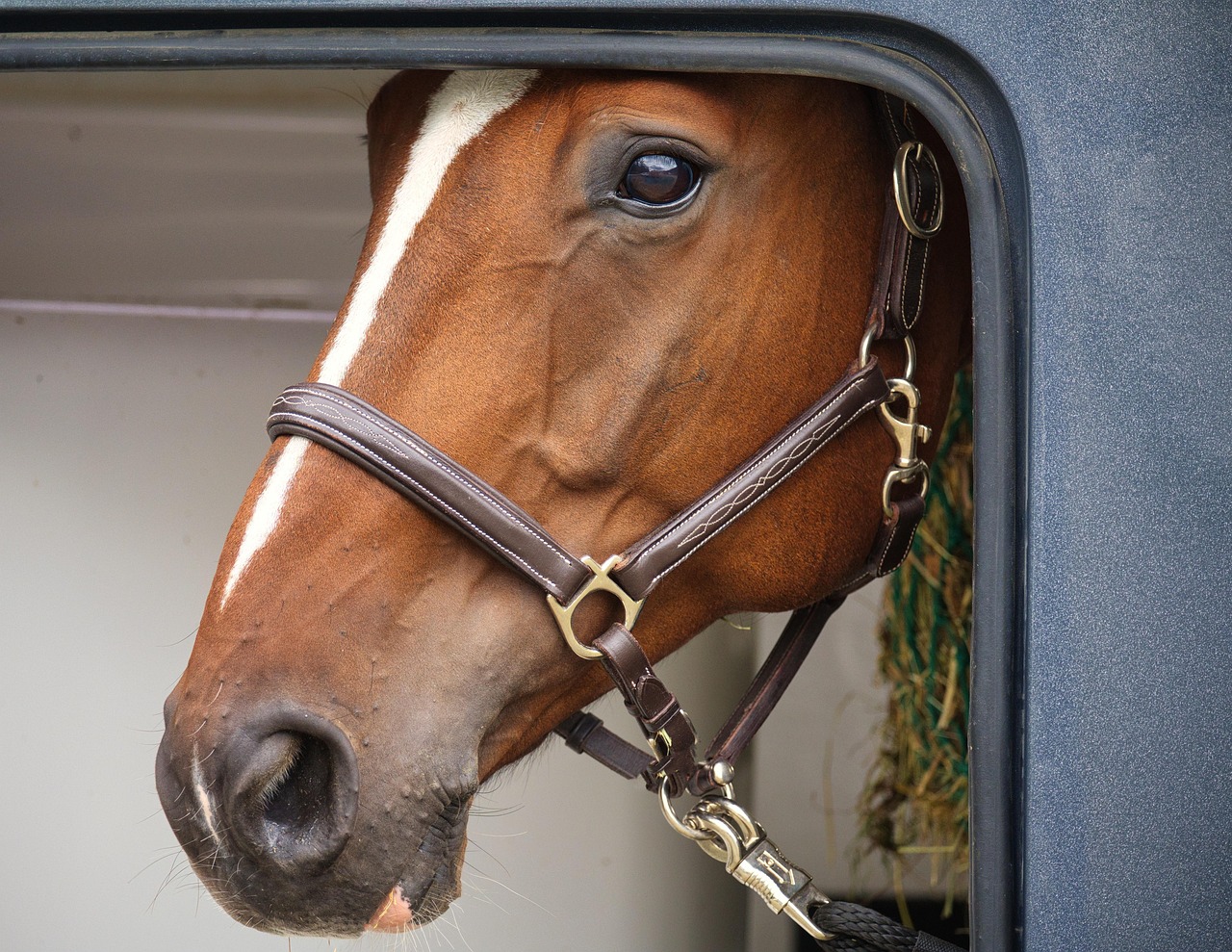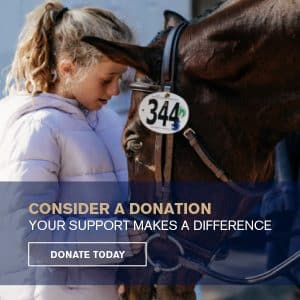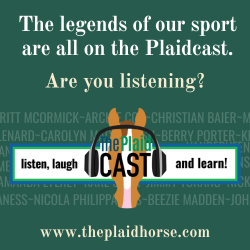Q: It took us hours to get my new OTTB loaded into our trailer when we brought him home. How do I make this process smoother and less stressful?
A: I view trailer loading as an extension of having good leading skills. By “good leading skills,” I mean a horse that is light, confident and understanding of their partnership with their handler. It’s not necessary for a horse that is sticky for loading to have had a previous bad experience or some kind of trauma; the entire process of trailering stacks a lot of common horse triggers. Thoroughbreds tend to be intelligent, multi-faceted horses, and those horses benefit from intelligent, multi-faceted solutions.
I’ve found that horses need to cultivate a set of mental abilities to become good loaders: these are all parts of the loading and trailering process.
- Settle and rest in various locations with distractions
- Handle physical restraint and boundaries, as well as small spaces
- Tolerate touch and sounds in their blind spots
- Tolerate a lack of full visual field
- Function with confidence independently and away from the handler
- Self-soothing and the ability to regulate themselves under stress
To help horses develop these abilities, I like to employ an array of component exercises and skills that I incorporate into my ground work. Each skill answers a question:
- Ground tying and pedestal or mark training: can my horse choose to stay and feel safe wherever I put him?
- Having your horse with you being “ignored on purpose:” standing with you on the line or ground tied while you teach lessons, as an example, so he can observe goings-on with accountability: can my horse take accountability for managing himself while things are going on around him?
- Lowering the horse’s head from pressure on the halter, keeping the head lowered as the horse backs and bends in a circle both ways: can my horse soften to physical pressure, and accept the comfort I am offering him in a new position?
- More precise body control on the line: can I, with minimal effort, direct my horse’s forehand and haunches independently and shift his weight on or off of each foot?
- Positive reinforcement (R+) target training (note that R+ is different from bribing the horse into a situation he’s not ready for!): can I help my horse stay in a “seeking” frame of mind rather than an “avoiding” frame of mind?
- Trail obstacles incorporating a step up, step down, or moving through narrow spaces: can my horse approach new puzzles with curiosity and body awareness?
When it’s time to practice loading on the trailer – and this is definitely something I want to practice mindfully and not wait until we have a reason to need to get on the trailer right away! – my job as the trainer is to stack the deck in our favor as much as I can. When I am practicing, we might just take a trailer trip to the end of the driveway and back. Here are a few things I keep in mind for training and practice:
- Keep the horse “under threshold” as far as stress: my job is to challenge him to where he builds confidence, not pushing him to the point of fight, flight or freeze
- Take advantage of horses being social animals, and use a “good influence” buddy horse wherever possible. That might mean the horse is just hanging out outside the trailer or nearby
- Use protective gear that makes sense for you and your horse: that might be a head bumper or boots, and that might also include gloves and a helmet for you as the handler. Some sensitive horses might do better loading in a blanket!
- Let them leave! If the horse knows he has an out, the trailer can become a lower-pressure zone. Practice taking him back or off before he feels like he needs to do that himself
- One calm ground helper is much better than many helpers bringing in a lot of energy
- Many of us have heard of the approach “work hard away from the trailer and rest at it.” Keep in mind that it can take very little pressure to get a horse to desire comfort. The more bothered they are, the harder it will be to help them full rest and regulate when the pressure comes off. This skill is key!
First experiences are important to horses, so be proactive in making those “firsts” go well. If I start a session in the mindset of “you will load today,” I’m already starting behind square one: chunk down the goal into manageable steps. Essentially, I think of trailer loading as groundwork with a trailer involved. Maintaining the connection and feel between the handler and horse during the loading process is more important than the end goal we have set for that day.
Overall, the goal with training is to establish positive patterns in the horse so that he can default to a behavior we like. Developing our horse’s ability to think his way out of a problem will pay dividends in many areas of his life.
Answering a question like this with “more groundwork!” feels like an overused response, but I’ll conclude with a story: my second Thoroughbred I ever owned when I was younger and less experienced was quite possibly the worst loader that ever lived. It took multiple people, multiple hours, and drugs to get him on the trailer, so we didn’t travel frequently. He ended up retiring in his early teens, and I decided to learn about liberty work so that he could have an unmounted retirement job.
He had a series of colics and I initially resisted taking him to the clinic, because he was historically so bad with loading that I thought the process would probably kill him. I employed the skills we had learned with liberty work, opened my lead rope, and was absolutely shocked when he lowered his head and just walked right on that trailer. He loaded and traveled safely the rest of his life. That was when I first thought “there might be something to this groundwork!”
Lauren Burke resides in Versailles, KY with her three Thoroughbreds. As the Equine Director for a non-profit, she provides equine-assisted learning programs to youth in central Kentucky. She is a whipper-in for Camargo Hunt club and also enjoys training in dressage, ranch riding, liberty, and trail. A previous Makeover trainer (2017, 2018, 2019) and current volunteer/steward, she is passionate about the value of Thoroughbreds and everything they have to teach us.



